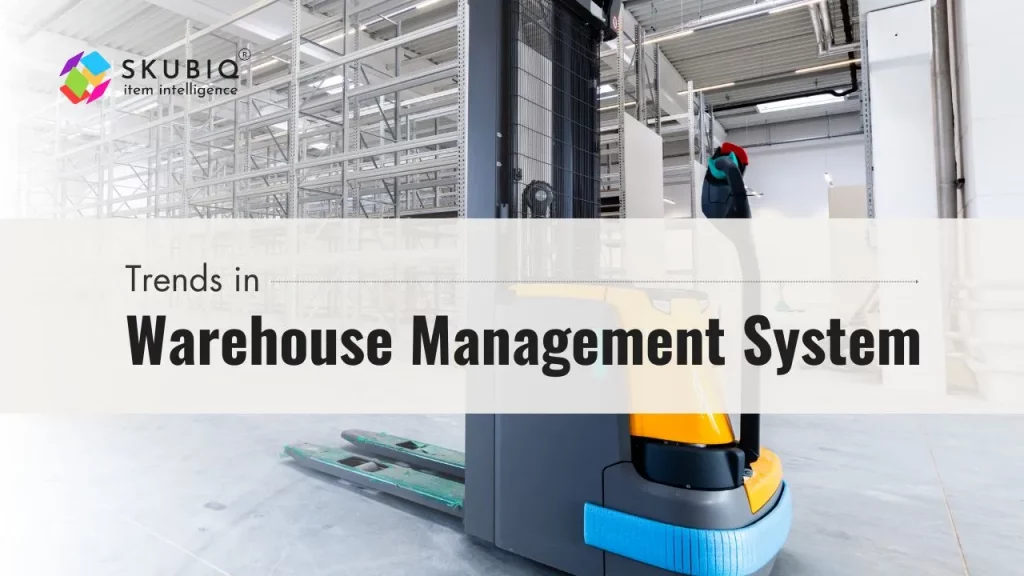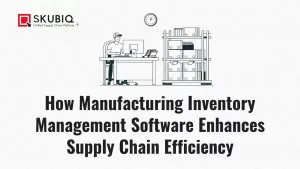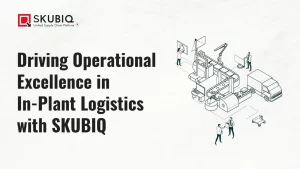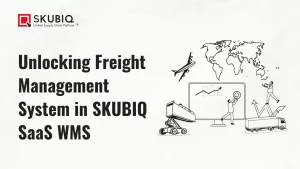Warehouse management systems (WMS) are at the forefront of enterprise management. In 2024, these systems continue to evolve, adapting to new technologies and market demands. Let’s delve into the trends in warehouse management shaping the industry this year.
1. Enhanced Integration of Inventory Management Systems
The integration of inventory management systems with WMS is becoming more seamless. This convergence allows for real-time tracking and optimization of stock levels, leading to improved efficiency and reduced wastage. Businesses are increasingly prioritizing this integration to streamline operations.
2. Adoption of Advanced Technologies
In 2024, warehouse management is witnessing a surge in the adoption of advanced technologies such as AI, machine learning, and IoT. These technologies enable WMS to analyze data more effectively, optimize routes, and enhance predictive maintenance, leading to smoother operations and cost savings.
Integration of Artificial Intelligence (AI) and Machine Learning
The integration of AI and machine learning algorithms into WMS enables intelligent decision-making and predictive analytics. These technologies analyze vast amounts of data to optimize processes such as inventory management, demand forecasting, and route optimization. By leveraging AI and machine learning, businesses can enhance efficiency, reduce costs, and improve overall productivity.
Implementation of Internet of Things (IoT) Solutions
IoT devices such as sensors, RFID tags, and smart meters are revolutionizing warehouse management by providing real-time visibility into inventory, equipment, and environmental conditions. By connecting IoT devices to WMS, businesses can monitor inventory levels, track asset movements, and detect issues such as equipment failures or environmental fluctuations. This real-time data enables proactive decision-making and enhances operational efficiency.
Utilization of Robotics and Automation
The adoption of robotics and automation technologies in warehouse management is reshaping the way tasks are performed within warehouses. Automated guided vehicles (AGVs), robotic pickers, and automated sorting systems are increasingly integrated into WMS to streamline processes such as order picking, packing, and inventory replenishment. By automating repetitive and labor-intensive tasks, businesses can improve accuracy, increase throughput, and reduce labor costs.
3. Focus on Sustainability
Sustainability is a growing concern for businesses worldwide, and warehouse management is no exception. Companies are incorporating eco-friendly practices into their WMS, such as optimizing routes to minimize fuel consumption and implementing recycling programs within the warehouse distribution center.
4. Expansion of Cloud-Based Solutions
Cloud-based WMS systems are gaining momentum due to their scalability, flexibility, and cost-effectiveness. Businesses are increasingly turning to cloud solutions to streamline warehouse management processes, as they offer easy access to data from anywhere and facilitate seamless collaboration among team members.
5. Emphasis on Cybersecurity
As WMS systems become more interconnected and data-driven, cybersecurity has become a top priority for businesses. Robust security measures are being implemented within WMS to safeguard sensitive information and protect against cyber threats, ensuring the integrity and confidentiality of data.
6. Customization for Specific Industries
One of the benefits of warehouse management systems is their versatility and adaptability to different industries. In 2024, there is a growing trend towards customizing WMS to suit the specific needs and requirements of various sectors, such as retail, manufacturing, and logistics.
7. Automation of Order Management
Automation continues to revolutionize warehouse management, particularly in the realm of order management. WMS are increasingly incorporating order management tools that automate processes such as order fulfillment, picking, and packing, reducing errors and improving overall efficiency.
8. Real-Time Analytics for Decision Making
Real-time analytics capabilities are becoming indispensable for modern WMS. These systems provide real-time insights into warehouse operations, allowing businesses to make informed decisions quickly. From inventory forecasting to demand planning, real-time analytics empower organizations to stay ahead of the curve.
9. Integration with Robotics
The integration of robotics with WMS is transforming warehouse operations, enhancing speed, accuracy, and efficiency. Automated guided vehicles (AGVs), robotic pickers, and drones are being integrated into WMS to automate tasks such as inventory counting, replenishment, and order fulfillment, optimizing workflows.
10. Focus on Employee Training and Engagement
While technology plays a crucial role in warehouse management, the human element remains paramount. Companies are investing in employee training programs to ensure staff are proficient in using WMS and other technologies effectively. Additionally, fostering a culture of employee engagement boosts morale and productivity.
In conclusion, the trends in warehouse management systems are continually evolving to meet the dynamic demands of the modern business landscape. From enhanced integration of inventory management systems to the expansion of cloud-based solutions and the adoption of advanced technologies, WMS are at the forefront of enterprise management. Embracing these trends enables businesses to optimize operations, enhance efficiency, and stay competitive in the ever-changing market.
Frequently Asked Questions (FAQs)
Integrating inventory management systems with WMS offers several advantages, including real-time tracking, optimized stock levels, improved efficiency, and reduced wastage. This integration streamlines operations and enhances overall inventory control, leading to cost savings and better customer service.
Advanced technologies such as artificial intelligence (AI) and Internet of Things (IoT) play a significant role in optimizing warehouse management in 2024. These technologies enable WMS to analyze data effectively, optimize routes, enhance predictive maintenance, and improve decision-making processes, leading to smoother operations and increased cost-effectiveness.
Sustainability is gaining prominence in warehouse management due to growing environmental concerns and corporate social responsibility initiatives. Businesses are integrating eco-friendly practices into their WMS to minimize carbon footprint, reduce energy consumption, optimize transportation routes, and implement recycling programs. Embracing sustainability not only benefits the environment but also enhances brand reputation and operational efficiency.
Cloud-based WMS solutions offer numerous advantages over traditional systems, including scalability, flexibility, cost-effectiveness, and easy accessibility from anywhere. These solutions eliminate the need for on-premises hardware, reduce maintenance costs, and provide seamless collaboration among team members. Additionally, cloud-based WMS enable real-time data access and updates, enhancing overall operational efficiency and decision-making capabilities.
The integration of robotics with WMS revolutionizes warehouse operations by enhancing speed, accuracy, and efficiency. Automated guided vehicles (AGVs), robotic pickers, and drones automate tasks such as inventory counting, replenishment, and order fulfillment, optimizing workflows and reducing human error. This integration leads to faster order processing, improved inventory accuracy, and enhanced overall productivity within the warehouse environment.



